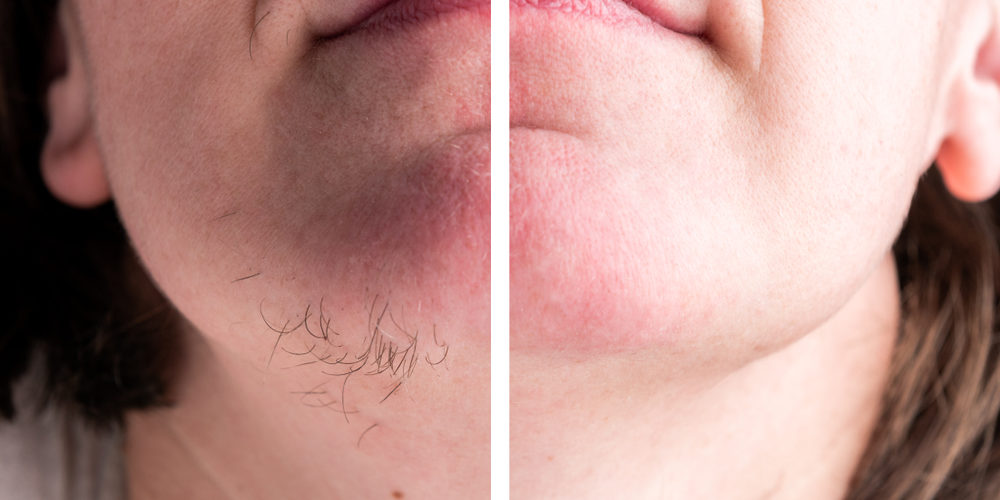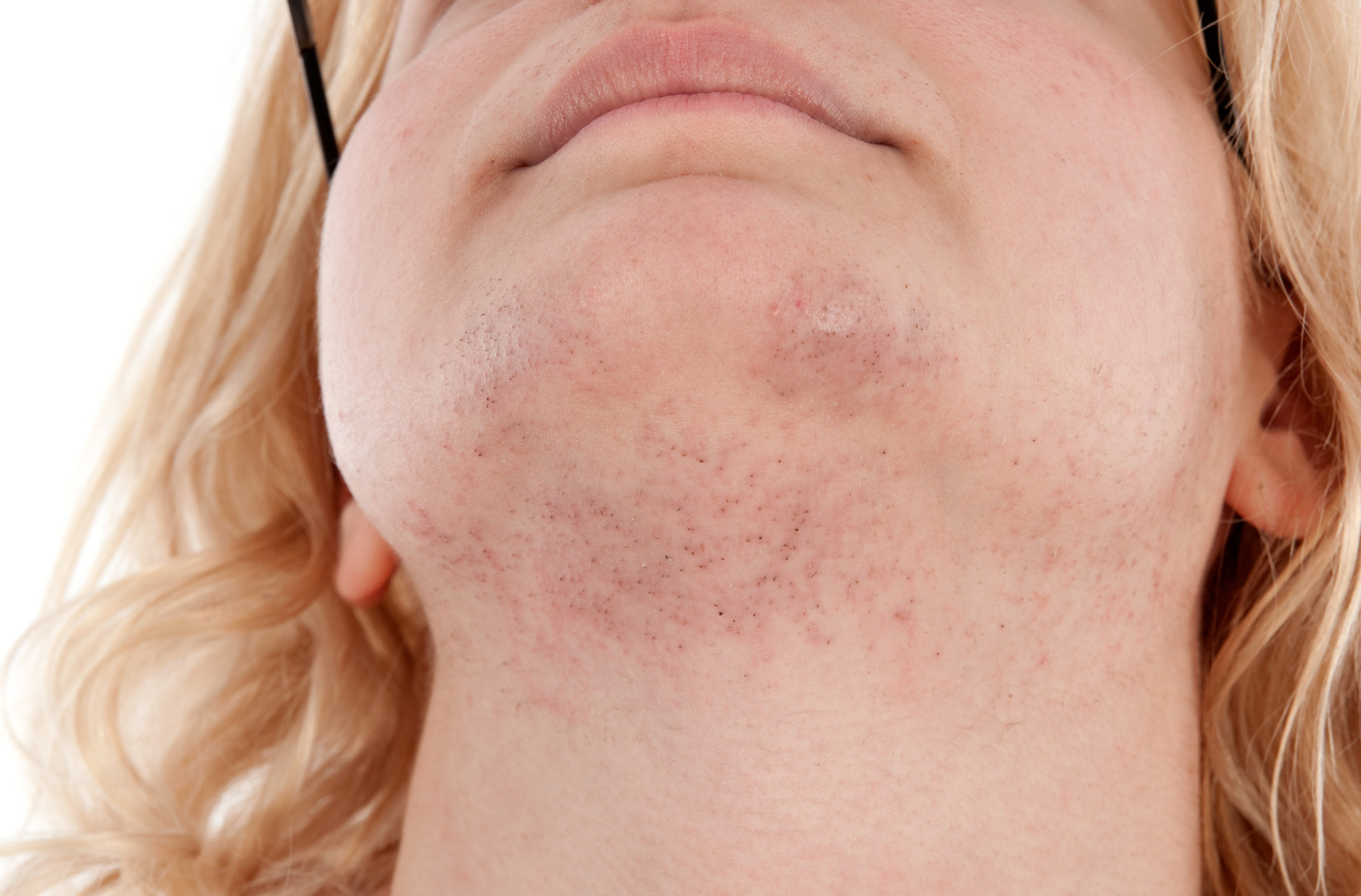Table Of Content

In rare cases, excess hair growth can signal a medical condition that requires treatment, such as PCOS, a tumor, or cyst. Sudden changes in facial hair patterns might mean your body is sending a sign something has changed. It can signal a hormonal imbalance caused by a medical condition or a side effect of medications.
What Causes Women to Get Hair Growth Around Their Nipples?
Once your body's insulin resistance is in control, there's a good chance your hair growth will return to normal. Electrolysis, or electropilation, is a process that uses electricity to permanently remove hair. There are a few different types of electrolysis, but the process generally works by inserting a fine probe into the hair follicle. From there, an electric current destroys the hair root, causing existing hair to fall out and preventing new hair from growing. That said, laser hair removal isn't recommended for everyone.
Hormone imbalance
"If you’re pregnant, taking a prescription acne medication, or have a history of keloid scars, I would advise against laser hair removal," Palm says. Here's what you need to know about the ways you can treat and prevent chin hair in women, straight from board-certified dermatologists Quynh-Giao Sartor, MD, Erum N. Ilyas, MD, and Melanie Palm, MD. Genetics most likely play a role because the condition runs in families. Certain ethnic groups of Mediterranean, Middle Eastern or South Asian decent are at a higher risk of developing the condition. Women with hirsutism due to overproductcion of androgen also may have small breasts and larger muscles than other women.
Hirsutism
Hormone changes like those we all experience during puberty can turn vellus hair into terminal hair. When we go through puberty, we’re producing more hormones — specifically, our body begins producing more androgens (also known as sex hormones or “male hormones”). New, long chin hairs can be annoying, but they’re often not cause for concern. And if they’re really bothering you, there’s a lot you can do to address them ― so don’t be afraid to chat with your doctor or dermatologist about any hair growth concerns you might have. All individuals produce androgens, but these levels typically remain low in individuals assigned female at birth.
What are the alternatives to facial shaving?
The unsightly hairs tend to be thick, and they sprout up quickly. What's more, if they're not removed properly, they can grow back as ingrown chin hair, which can cause inflammation, pain, and tiny bumps in the area where the hair was removed. To teach us how to prevent and treat ingrown chin hair, we called on the pros. Keep reading to hear what two dermatologists and a hair removal expert have to say about keeping ingrown chin hair at bay. "These are common symptoms of a condition called PCOS that requires particular attention and treatment."
The heartbreaking story of UP topper Prachi Nigam and the taboo around facial hair
Shaving your face can help clean up and brighten your skin, making it easier to apply makeup. It’s also good to see a doctor to rule out a medical cause for your facial hair. "Doing this increases the chances of more ingrown hairs. It can clog the follicle and cause inflammation, which is not an infection but can make the areas inflamed." "Keeping the face clean doesn’t prevent ingrown hairs because ingrown hairs aren’t caused by dirty skin," Ostad emphasizes. Cushing's syndrome is the result of the body dealing with an excess of the hormone cortisol, often referred to as the stress hormone. Many symptoms can indicate Cushing syndrome, from thick, dark hair on the face and body often sounding the alarm for doctors.
"What we do is clean off the area and then use a sharp tool to specifically open or puncture the area and express the follicle with its contents." "The best way of removing an ingrown would be with a laser," says Karavolas. "It would target the ingrown without damaging the surrounding area and remove [the hair] without causing scarring or pigmentation." According to Dr. Garshick, oral contraceptives or spironolactone may be prescribed upon evaluation by a doctor. "Oral contraceptive pills may help balance fluctuating hormones while spironolactone is an anti-androgenic drug often used to treat hirsutism," she says. Laser hair removal is another long lasting solution to deal with chin hair.

Diagnosing hirsutism
The 8 Best Facial Hair Removers of 2024, Tested and Reviewed - PEOPLE
The 8 Best Facial Hair Removers of 2024, Tested and Reviewed.
Posted: Wed, 10 Jan 2024 08:00:00 GMT [source]
Sartor explains that within the general population, hirsutism affects approximately 5 percent of women of reproductive age. While some facial hair is par for the course, Desai says that if the hair grows thick and coarse, there’s a chance that hirsutism (or excessive male-pattern hair growth) is at play. “Hirsutism affects between five and 10 percent of females of reproductive age,” she explains, noting that it’s caused by an uptick in androgens (aka male hormones like testosterone). Cis women “mostly have vellus hair with very few thick dark hairs on the face,” Cindy Wassef MD, assistant professor at the Rutgers Center for Dermatology, tells SELF. If you decide to give laser hair removal a try, know that there are some potential side effects to be aware of.

Another way to control unwanted hair growth is to use a prescription cream called Vaniqa, which makes hair grow more slowly, finely and possibly lighter in color when applied twice a day. But the cream only works for as long as it’s used — once you stop applying it, hair will grow back the way it grew before, Dr. Lamb said. While we don't know their exact cause, growths or masses on your ovaries can actually amp up your body's production of those facial hair-causing androgen hormones.
Even a slight increase in androgen or imbalance between your male and female sex hormones — which everyone has — can result in more terminal hairs in places you may not expect, like your chin. For more permanent results, laser hair removal is a good option. In fact, Sartor says this is the most effective method for permanently removing chin hair. Though rare, congenital adrenal hyperplasia can cause women to grow heavy coarse hair on their chins.
Laser hair removal or electrolysis can provide more permanent results than shaving, waxing, or depilatories. Hair removal techniques are a nonmedical way to manage excessive hair. These are the same hair removal methods that some people use to keep their legs, bikini line, and underarms free of hair. Side effects of eflornithine include skin rash and irritation. People with congenital adrenal hyperplasia are born without an enzyme that’s necessary for hormone production. An adrenal tumor can cause the overproduction of certain hormones, such as prolactin.
Electrolysis has a longer lasting effect than some other methods of hair removal, such as shaving or plucking. Make an appointment to discuss these changes with your doctor. Keep in mind, these are some general signs of hormonal imbalance. Unlike Kanye, I'm not going to let you finish but rather just go right ahead and interrupt what could turn into a very unnecessary worry spiral (you're welcome). Growing the occasional chin hair or two is fairly common in women and shouldn't warrant concern.
If the infection doesn't begin to improve in a few days, you should see your doctor, who can release the ingrown hair with a small cut. Use a good-quality pair of tweezers that won't slide off or break hair unnecessarily. If you break the hair, it sharpens the end (typically at a slant), increasing the chances of it becoming ingrown as it pierces the skin more easily. Luckily, tweezers don't have to break the bank to do their job. Tweezerman Slant Tweezers ($24) are almost everyone's top pick, for good reason.
“Double-dipping” can introduce bacteria into the wax and may cause a skin infection. When you’re shopping for wax, look for soft wax, or wax that’s formulated for use on the face. Talk to your doctor if you take medicines that can cause hirsutism. Individuals previously diagnosed with PCOS have a higher risk of developing hirsutism. Hirsutism can affect anyone, at any age, but you’re more likely to experience it if you have a family member who has also been diagnosed with it. The Office of Women’s Health states that individuals living with obesity, and those who have a family history of the condition, are at a higher risk of developing PCOS.
Kausel noted that while a little chin hair here and there in older women is normal, it should be minimal. If you notice a lot of growth, you should see a doctor for a blood test and, potentially, a pelvic ultrasound. And whether you do or don’t get those long chin hairs comes down to your genetics. There are treatments to help slow down your hair growth and lessen unwanted hair.




















